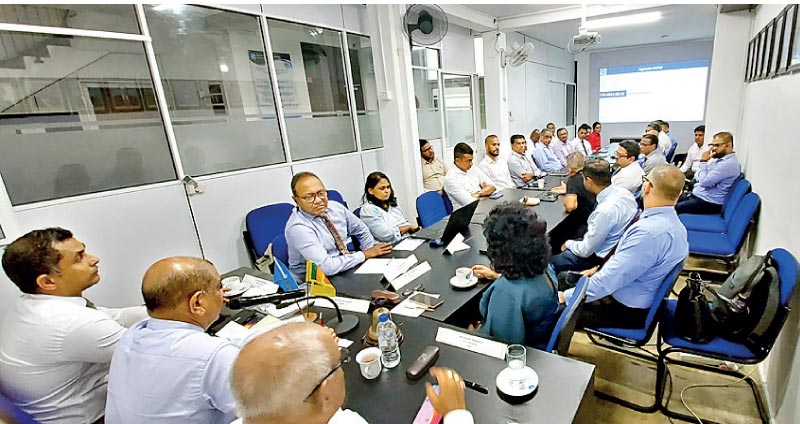Monday Feb 23, 2026
Monday Feb 23, 2026
Monday, 22 July 2024 01:34 - - {{hitsCtrl.values.hits}}

The National Chamber of Exporters of Sri Lanka (NCE) has expressed its strong opposition to the planned removal of the Simplified Value Added Tax (SVAT) system, scheduled for April 2025.
As the sole chamber representing the interests of Sri Lankan exporters, the NCE via a statement highlighted the potential negative impacts on the export sector and the broader economy if this crucial mechanism is abolished without a functional alternative in place.
The SVAT system was introduced to address significant challenges faced by exporters under the traditional VAT framework. By deferring VAT payments and simplifying the refund process, SVAT has provided several key benefits.
NCE said exporters currently avoid the financial strain of upfront VAT payments, allowing better allocation of resources towards business operations and expansion. SVAT has streamlined the VAT process, minimising paperwork and administrative complexities for businesses and tax authorities alike. By lowering operating costs and avoiding VAT-induced cash flow issues, exporters can maintain competitive pricing in the global market. SVAT ensures efficient and prompt VAT crediting, offering greater financial stability to exporters.
The system has been pivotal in promoting export activities, and contributing to foreign exchange earnings and overall economic growth.
The proposed removal of SVAT threatens to reverse these gains, imposing severe financial and operational challenges on exporters. Without SVAT, exporters will be required to pay VAT upfront on their purchases, significantly straining cash flow and tying up capital essential for business operations. The additional funds needed to cover VAT payments will increase the financial burden on exporters, potentially hindering their growth and sustainability. Reverting to the standard VAT system will reintroduce cumbersome paperwork and a slow refund process, diverting valuable resources away from core business activities. The inefficiencies in the current VAT refund system mean that businesses will face prolonged delays in receiving their due refunds, exacerbating cash flow issues and creating financial uncertainty.
The increased costs and complexities could erode the competitive edge of Sri Lankan exporters, making it harder to offer attractive pricing in international markets. The heightened financial and administrative challenges may discourage businesses from pursuing export opportunities, potentially leading to a decline in overall export activities. Smaller businesses, with less financial resilience and administrative capacity, will be disproportionately affected, risking their viability and growth.
Sri Lankan exporters are already facing numerous challenges and are operating on very thin margins. The removal of SVAT will only add to their difficulties, potentially crippling the sector that is vital for the country’s economic stability and growth. This negative approach will crash many SMEs and discourage others from entering the export business, further weakening the sector and limiting its potential for expansion.
NCE said Sri Lanka is now focused on making the country an export-driven economy. Even though the Government has negotiated to delay debt repayment, in a few years we will need to meet these obligations. “For this, we need our exporters to be strong and capable of generating the necessary foreign currency flow into the country. It is crucial to get more exporters on board and increase the number of exporters in Sri Lanka, as well as to expand the export product basket. For these goals to be achieved, Government policies must be favourable and supportive of the export sector,” NCE said.
Recent council meetings of the NCE, which consist of over 40 leading exporters covering all products and service sectors and representing the SME to Extra Large categories, have raised concerns about the removal of SVAT. They have voiced their concerns about the negative impact this change will have on their operations and the broader economy.
The NCE urged the Government to reconsider the removal of the SVAT system. “We advocate for maintaining SVAT until a robust and functional VAT refund mechanism is in place. The export sector is a vital pillar of the Sri Lankan economy, and its stability and growth must be safeguarded,” NCE emphasised.